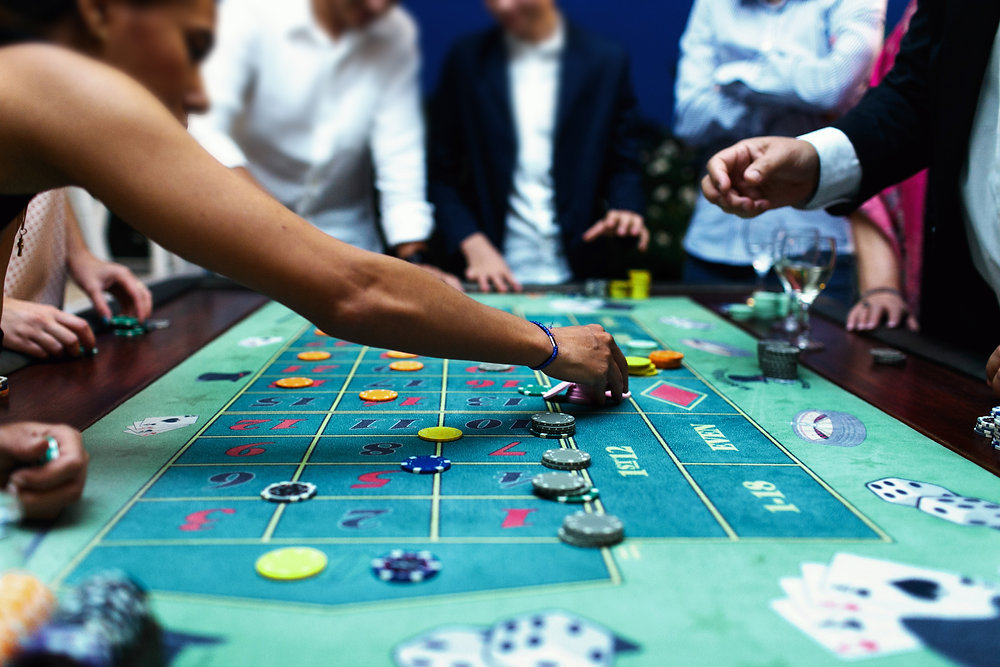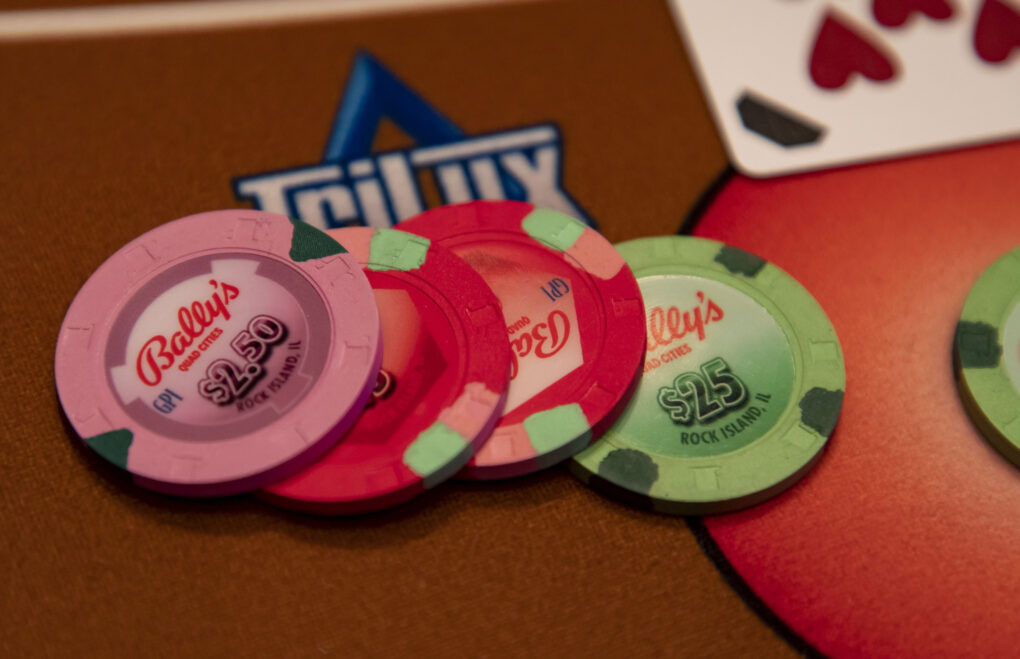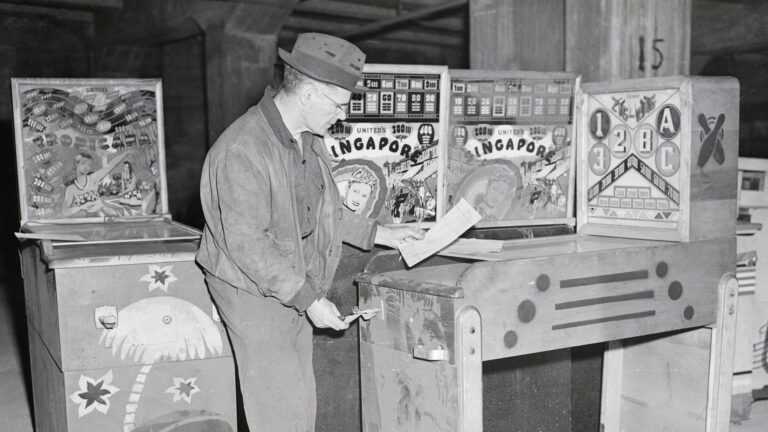Gambling has been a part of American life since the country’s founding. From the time of George Washington and his contemporaries to modern-day Chicago, gambling has taken on many forms over the years.
This article delves into the history of gambling in one major city: Chicago. Well, look at how it evolved from its prohibition-era roots to an industry that is now regulated by permits issued by local governments.
Along with exploring legal changes, we also examine some of the cultural impacts that have accompanied this transformation. Whether youre looking for a brief overview or want to get more specific details about particular aspects of gambling in Chicago, this article promises something for everyone interested in learning about this significant change in our culture and history.
Historical Overview of Gambling in Chicago Before Prohibition
Chicago has been a hub of gambling for centuries, long before prohibition. The earliest known accounts of organized gambling in Chicago date back to the late 1700s when traveling poker and horse racing matches were held near Lake Michigan. By the mid-1800s, Chicago had begun to develop an underground scene that included betting on cockfights, dog races, and dice games.
In 1879, the first legal forms of gambling appeared in the form of lotteries and sweepstakes sponsored by churches or charitable organizations. This was followed by sports books which allowed people to place wagers on professional baseball games as early as 1886.
During this period, saloons began offering card games such as blackjack and poker played for money along with other types of gaming like roulette wheels and slot machines that dispensed hard candy instead of coins. By the turn of the century, there was a wide variety of illegal casinos operating throughout Chicago’s downtown area.
These establishments offered traditional table games such as craps and 21 but also boasted more exotic offerings like fan tan (a Chinese game) faro (a French game) keno (an American game based on bingo) which became increasingly popular amongst visitors from all over America who flocked to these illicit dens where they could try their luck at winning big payouts without fear of being arrested or harassed by law enforcement officers who tended to look away when it came down strictly enforced laws against gambling in Illinois at this period. The popularity continued up until Prohibition hit in 1920 when all forms legalized or not were banned across America – though some speakeasies did offer limited gaming opportunities during this era despite its illegality if you knew where to look.
After Prohibition ended in 1933 however state legislators made new moves towards legalizing certain forms once again with pari-mutuel wagering becoming permitted through off-track betting halls around 1936 while simulcast betting didn’t become officially available until 1985 – making it one last frontier for gamblers looking to find somewhere safe bet legally within city limits even today!
Impact of the 18th Amendment on Gambling in Chicago

The 18th Amendment to the U.S.
Constitution, which prohibited the manufacture and sale of alcohol in 1919, had a significant impact on gambling in Chicago. During Prohibition, organized crime filled the void left by legal establishments such as casinos and gaming halls that were forced to close their doors due to the new federal law.
Despite attempts by authorities to clamp down on illegal gambling operations across the city, these clandestine activities flourished throughout much of this period. By 1933 when Prohibition was repealed with the passage of the 21st Amendment, public opinion had shifted significantly against gambling due largely in part to its association with organized crime during this time frame.
Following the repeal of Prohibition, local governments began placing tight restrictions on legalized gambling within their borders; many outright banned it altogether while others issued permits but only for certain limited types of games or locations like horse racing tracks and charitable bingo games. This meant that even after repeal it remained difficult for casino owners and other operators who wanted to offer legal gaming services within Chicagos city limits – they often found themselves facing long waits for licensing or being denied entirely from obtaining one at all given how rigidly enforced these regulations were at first.
Legalization and Regulation of Gambling After Prohibition
Following the U.S. Prohibition of alcohol in 1920, gambling soon followed suit and was outlawed in Chicago. However, with the rise of organized crime syndicates during this era, illegal gambling operations continued to thrive due to a lack of enforcement from law enforcement officials.
As such, it wasn’t until after World War II that the city began to consider legalizing certain forms of gaming for citizens’ entertainment purposes. In 1949, Illinois passed a new bill allowing wagering on horse racing within its borders – marking the first time since prohibition that any type of legal betting had been allowed in Chicago.
This legislation also paved the way for state-regulated casinos and sportsbooks to be established throughout the city over time; although their numbers have remained relatively limited compared with other major metropolitan areas across America. With these newly authorized venues came an increased focus on regulation and taxation by authorities – ensuring all citizens engaging in legal gambling were playing fair games which posed minimal risk for fraud or cheating attempts from outside parties.
This has resulted in some strict rules being implemented regarding age restrictions at casinos as well as mandatory identification checks when entering any licensed establishments – making sure only those legally able are participating in activities at these locations while preventing minors from accessing them altogether. Today, gambling remains strictly regulated by both federal and local governments across Illinois; however, there is still room for expansion if public opinion continues to remain favorable towards gaming initiatives within the state boundaries going forward into 2021 and beyond!
Conclusion

Chicago has a long and varied history of gambling. From the early days of prohibition in the 1920s to today’s vibrant casino scene, there has been a continued interest in the city for betting on games of chance.
In recent years, several new casinos have opened up in Chicago that offer visitors a wide variety of gaming experiences. These include everything from classic table games like blackjack and craps to slot machines and more modern offerings like virtual sportsbooks.
Additionally, some of the best casinos online can also be found here, allowing players from all over the world to get involved with these exciting gaming opportunities right at their fingertips. All-in-all, Chicago offers something for everyone when it comes to gambling entertainment.
